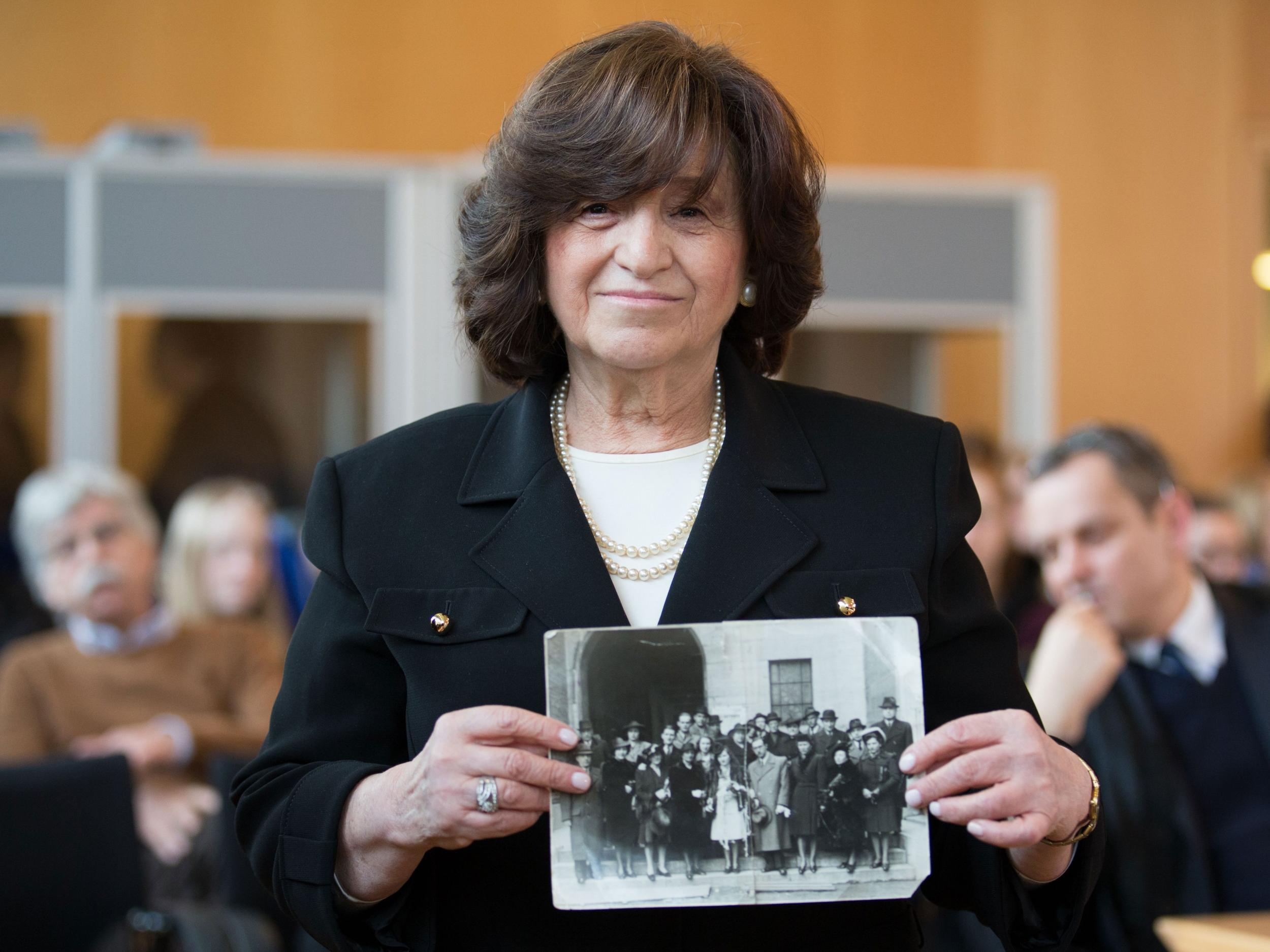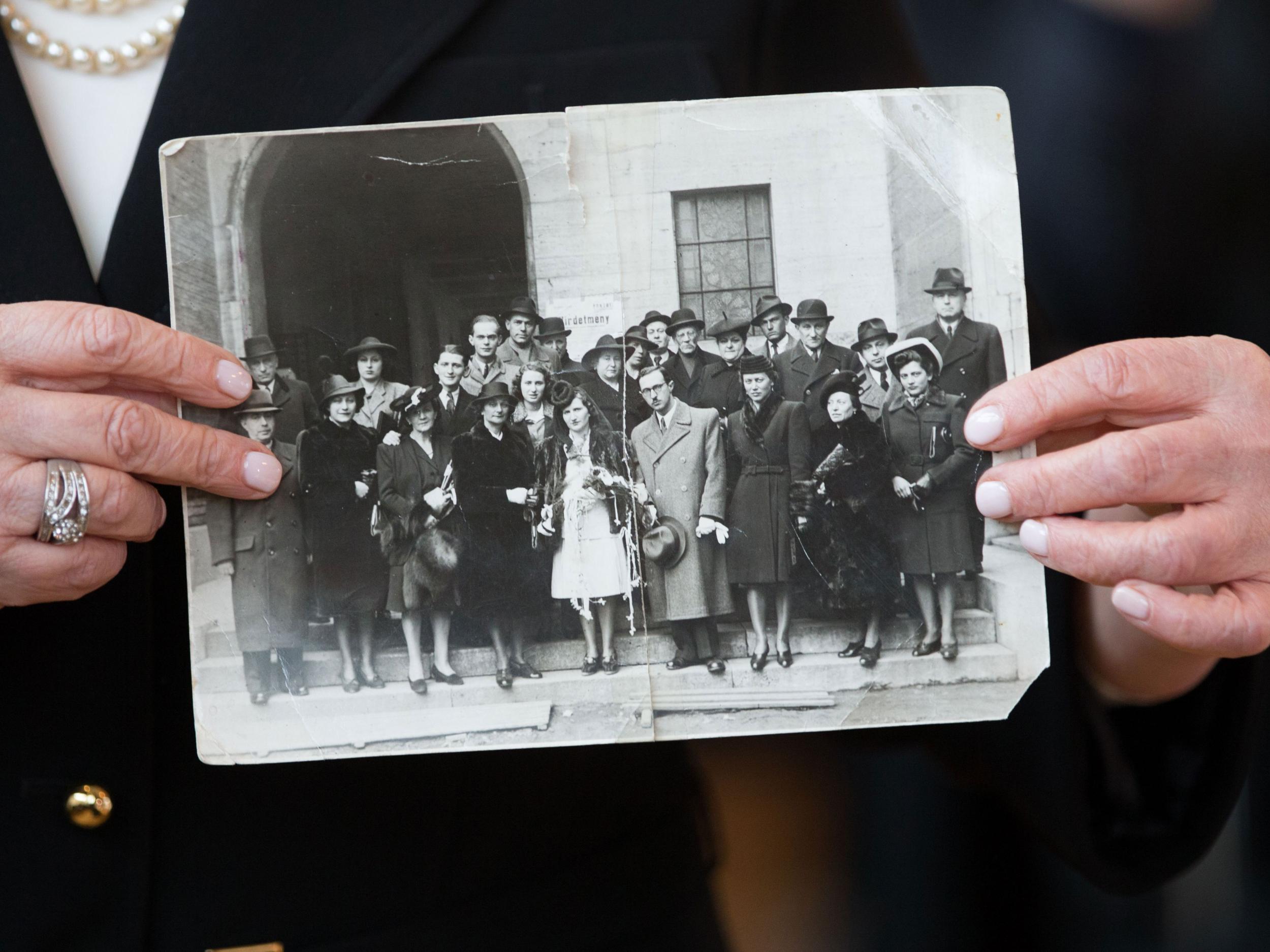Woman born in Auschwitz, Angela Orosz, speaks of hellish birth in Camp C barracks
'I was so malnourished, I was unable to cry which helped ensure no one discovered me'

Angela Orosz was seven years old when she first became aware of her unusual and traumatic birth place – Auschwitz-Birkenau concentration camp in Nazi-occupid Poland.
Recounting her birth, Ms Orosz revealed how her low weight and weakened state, which made her too fragile to cry, saved her life after her mother, Vera Bein, gave birth to her on a bunk in the barracks of Camp C.
“I was born three days before the SS celebrated Christmas, so probably 21 December 1994,” Ms Orosz told the Guardian.
“I was so malnourished, I was unable to cry which helped ensure no one discovered me.”

Three hours after giving birth, aided by the barrack who had managed to obtain a sheet, hot water and scissors, her mother was then forced to leave her baby and stand in line for roll-call.
Ms Bein, who died in 1992, had arrived in Auschwitz with her husband on 25 May 1944, when she was three months pregnant.
She had been separated from her husband before being narrowly spared from the gas chambers; instead being chosen by Josef Mengele – the infamous Auschwitz doctor who experimented on inmates – for forced labour.
While she was pregnant, Ms Orosz explains, Ms Bein was selected for experimentation by Mengele’s team who forcibly injected a “burning substance” into her cervix.
Now 71 years old, Ms Orosz recounted her story again at the trial of the 94-year-old former SS sergeant, Reinhold Hanning, last month where he faced charges for being an accessory to the murder of 170,000 people - the number killed between 17 May and 12 June 1944 when he is known to have been there.
Ms Orosz is one of several survivors of the 425,000 members of Hungary’s Jewish community who were deported to Auschwitz between May and July 1944 (almost all of whom were exterminated) who attended the trial.
Hanning admits working at the camp in Nazi-occupied Poland but denies involvement in the mass murder that took place there.
Given Hanning's age and those of the witnesses, the trial in Detmold is likely to be one of the last of its kind.
Ms Orosz said she wanted to give testimony “on behalf of the six million Jews who cannot be here because they were murdered”.
Join our commenting forum
Join thought-provoking conversations, follow other Independent readers and see their replies
Comments
Bookmark popover
Removed from bookmarks